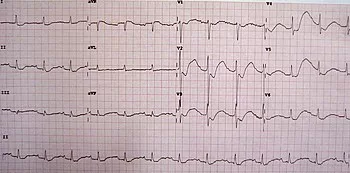Potassium is an essential mineral that plays a critical role in maintaining various bodily functions. It is crucial for nerve transmission, muscle contractions, and fluid balance. However, when potassium levels fall too low, a condition known as hypokalemia can occur, leading to a plethora of health issues. In this blog post, we will delve into the signs and symptoms of low potassium, why maintaining optimal potassium levels is essential, and what steps you can take to address this condition.
What is Hypokalemia?
Hypokalemia is characterized by lower than normal levels of potassium in the bloodstream. The normal potassium levels in the body range from 3.6 to 5.2 millimoles per liter (mmol/L). A reading below 3.6 mmol/L is typically considered a sign of hypokalemia. This condition can arise due to various causes, such as inadequate dietary intake, prolonged diarrhea, excessive sweating, use of certain medications like diuretics, or underlying medical conditions affecting kidney function.
Common Signs and Symptoms of Hypokalemia
Recognizing the symptoms of hypokalemia is crucial for early intervention and treatment. Here are some common signs and symptoms associated with low potassium levels:
1. Muscle Weakness and Cramping
Muscles require potassium to function correctly. A deficiency can lead to muscle weakness, cramps, or spasms, often affecting the legs and arms. These symptoms can be particularly noticeable after physical activities.
2. Fatigue and Weakness
Feeling unusually tired or weak despite adequate rest could indicate low potassium levels. Since potassium is vital for providing energy to cells, insufficient levels can lead to persistent fatigue.
3. Constipation
Potassium is important for smooth muscle contractions in the digestive tract. Low levels can slow these contractions, leading to constipation and other digestive issues.
4. Irregular Heartbeat
A fluctuation in potassium levels can impact the heart’s rhythm, potentially leading to arrhythmias or irregular heartbeats. This can be serious and requires immediate medical attention.
5. Numbness or Tingling
Experiencing numbness or a tingling sensation, particularly in the hands and feet, may be linked to low potassium, as it is crucial for nerve function.
6. Excessive Thirst
People with hypokalemia might experience excessive thirst and drinking large amounts of fluids. This can contribute to a further imbalance of electrolytes.
7. Difficulty Breathing
In severe cases, low potassium levels can affect lung function, making it difficult to breathe. If you experience trouble breathing, it’s vital to seek medical help promptly.
8. Frequent Urination
Hypokalemia can lead to frequent urination, as it affects kidney function, resulting in an increased need to urinate.
Severe Complications of Untreated Hypokalemia
In extreme cases, untreated hypokalemia can lead to severe complications such as muscle paralysis or muscle breakdown. The body relies on potassium for muscle repair and maintenance. Low levels can cause significant deterioration in muscle tissue, leading to permanent damage if left unaddressed.
Causes and Risk Factors
Understanding the causes and risk factors associated with hypokalemia can help in prevention and early intervention. Some common causes include:
- Excessive sweating or exercise: Leading to loss of potassium through perspiration.
- Dietary deficiencies: Inadequate intake of potassium-rich foods like bananas, oranges, and spinach.
- Chronic diarrhea or vomiting: Resulting in depletion of potassium levels.
- Medication: Certain diuretics or laxatives can affect potassium absorption.
- Medical conditions: Such as hyperaldosteronism or renal tubular acidosis.
Individuals with these risk factors should be particularly vigilant and monitor their potassium levels regularly.
Diagnosis and Testing
If you suspect you have low potassium levels, consulting a healthcare provider is critical. Diagnosis typically involves a blood test to measure the potassium level in your bloodstream. Additional tests might be conducted to uncover potential underlying causes, such as kidney function assessments or ECG (electrocardiogram) to evaluate heart rhythm issues.
Treatment and Management
The treatment for hypokalemia depends on its severity and underlying cause. Here are some strategies for managing low potassium levels:
Dietary Changes
Incorporating more potassium-rich foods into your diet is a natural way to boost potassium levels. Foods like bananas, avocados, sweet potatoes, and beans are excellent sources of potassium.
Supplements
Potassium supplements might be prescribed for those who cannot obtain enough potassium through diet alone. It’s crucial to follow a doctor’s instructions when taking supplements to avoid potential side effects from excessive potassium.
Addressing Underlying Causes
Treating conditions that cause hypokalemia is necessary. This could mean adjusting medications, treating gastrointestinal issues, or managing kidney-related problems.
Lifestyle Modifications
Maintaining a balanced diet, staying hydrated, and managing stress can also help in maintaining optimal potassium levels.
Preventive Measures
Preventing hypokalemia involves adopting healthy lifestyle habits. Here are some tips:
- Balanced Diet: Ensure a well-rounded diet that includes sufficient potassium-rich foods.
- Hydration: Proper hydration helps maintain electrolyte balance.
- Regular Check-Ups: Regular medical check-ups can help monitor potassium levels.
- Exercise: Moderate exercise keeps muscles active and enhances overall health.
Conclusion
Awareness of hypokalemia and its symptoms can lead to prompt action and prevent potential complications. Maintaining a balanced diet and healthy lifestyle, along with regular medical consultations, can help with early detection and effective management of low potassium levels. Remember, it’s vital to consult healthcare professionals for personalized advice regarding any symptoms related to potassium deficiency.
Stay informed and proactive in your health journey, and let HealthFunda guide you to a healthier life. For more insightful health tips and updates, continue following HealthFunda online.
Disclaimer: This blog post is intended for informational purposes only and should not be considered medical advice. Please consult a healthcare provider for any health concerns or before making


